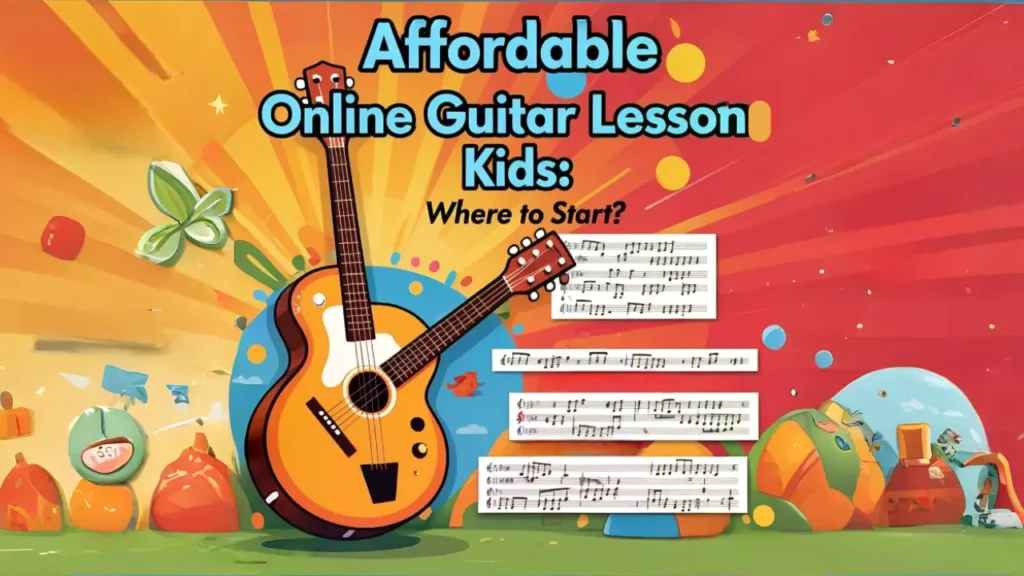How Long Does It Take for Kids to Learn Guitar Online?

Table of Contents
For parents considering enrolling their child in an online music school, one of the most common questions is: How long will it take for my child to learn the guitar? While there is no one-size-fits-all answer, understanding the learning process, potential challenges, and success stories can help set realistic expectations.
Learning Speed Varies for Every Child
Every child learns at their own pace. Some may pick up chords within a few weeks, while others may take a few months to develop basic proficiency. According to research by the National Association for Music Education, children who practice consistently for at least 30 minutes a day show noticeable improvement within 3 to 6 months. However, mastery of the instrument can take several years, depending on factors like age, natural aptitude, practice frequency, and the quality of instruction.
A study conducted by the Associated Board of the Royal Schools of Music (ABRSM) found that children who engage in structured music lessons are 17% more likely to progress faster than those who learn casually. The presence of a well-designed curriculum, experienced teachers, and goal-oriented learning significantly influence progress.
Case Studies: Learning Guitar Online
Many parents wonder whether online guitar lessons can be as effective as in-person classes. The answer lies in structured guidance and engagement.
Take the case of Arjun, a 10-year-old student who had no prior experience with music. His parents enrolled him at Gandharva where he received one-on-one coaching, structured lesson plans, and real-time feedback. Within six months, he was able to play simple songs and confidently transition between chords. His parents noted that the flexibility of online learning allowed him to progress at his own pace, without the pressure of a rigid schedule.
Another example is Mia, a 12-year-old who had tried learning guitar through free video tutorials but struggled with motivation. Her parents later enrolled her at Gandharva with live classes and structured certifications. The accountability of regular classes helped her develop a disciplined practice routine, and within a year, she was confidently performing in online recitals.
What Factors Influence Learning Time?
Several factors determine how quickly a child learns to play the guitar:
- Age and Cognitive Development – Younger children (ages 6-9) often take longer to develop finger strength and coordination, while older children (10+) can grasp concepts faster.
- Practice Consistency – Regular practice (at least 20-30 minutes a day) significantly speeds up learning.
- Instructor Guidance – A well-trained teacher with structured lessons can help a child progress 30% faster than those relying on self-learning, according to an online music education survey.
- Course Structure – Programs offering certified courses and guided progressions tend to yield better results than informal learning platforms.
Parental Support – Children with encouraging parents who create a positive practice environment tend to stay motivated longer.
Choosing the Right Online Guitar Program
While many platforms offer online guitar lessons, few provide structured learning paths with certified courses. Parents often struggle to find a balance between affordability, flexibility, and quality instruction. Gandharva School of Music integrates international certifications and expert mentorship which tends to help students stay on track and make measurable progress. We have successfully filled this gap by offering live one-on-one lessons, guided curriculums, and a clear roadmap for skill development.
Conclusion
Learning guitar online is a journey that varies for every child. With the right combination of structured lessons, consistent practice, and proper guidance, most children can start playing simple songs within a few months and reach an intermediate level within a year or two. Rather than focusing on speed, parents should prioritize quality learning experiences that keep their children engaged and motivated. After all, isn’t the joy of music worth the journey?



